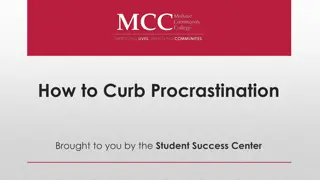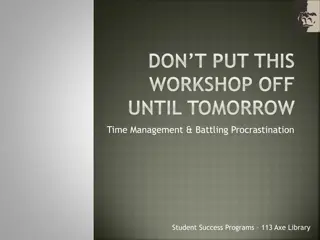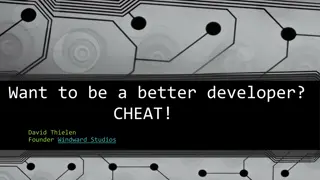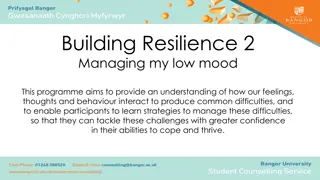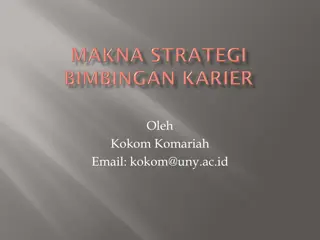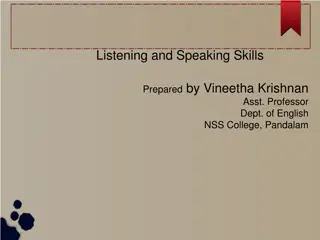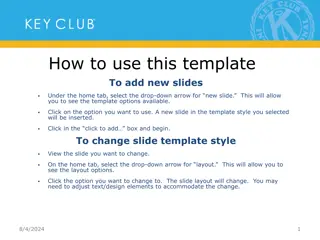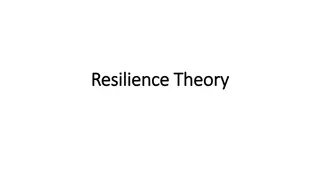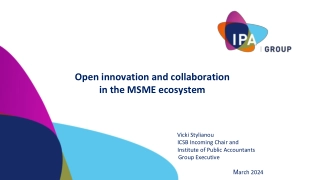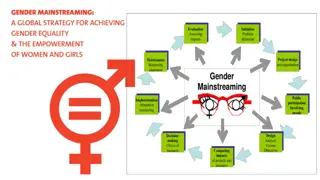Understanding Procrastination: Types and Strategies to Help Overcome It
Procrastination is the act of delaying tasks due to various reasons like fear of failure, lack of action, feeling overwhelmed, or being too busy. Different types of procrastinators include perfectionists, dreamers, overwhelmed avoiders, and busy bees. Strategies to tackle procrastination include visualizing task completion, setting goals, breaking tasks into manageable chunks, and prioritizing important tasks. By understanding these types and implementing appropriate strategies, individuals can work towards overcoming procrastination and improving productivity.
Download Presentation

Please find below an Image/Link to download the presentation.
The content on the website is provided AS IS for your information and personal use only. It may not be sold, licensed, or shared on other websites without obtaining consent from the author. Download presentation by click this link. If you encounter any issues during the download, it is possible that the publisher has removed the file from their server.
E N D
Presentation Transcript
ARE SOME OF THESE FACES & SCENARIOS SIMILAR WHEN ASKING YOUR SON OR DAUGHTER ABOUT STUDYING OR HOMEWORK
Common phrases heard in households across Scotland with school age pupils about studying.. I ll do it later I find it too difficult I m busy just now I don t have what I need I don t have anything to study for Exam is ages away It s boring I ve already done it But the only way is Essex is on I can t be bothered
What is procrastination? Procrastination is the action of delaying or postponing something. Looking for instant gratification of doing something they will enjoy rather than putting in the effort to do something they don t want to just now for their long term success They lack the foresight to see the benefits for their future self and focus on their current self happiness There are many different types of procrastinator's. We are going to look at some of these types and how we can support our young people to minimise this. Type 1 Perfectionists Fear What it may look like For this type of person procrastination is the subconscious fear of failure. If they put off the task long enough then they don t have to face up to the potential negative results. They can use this an excuse as to why they didn t do well as a means of defence mechanism. How you can help to tackle this Ask the young person to visualize the end of the task and the positive feelings it will have if done well. Ensure that they understand perfection is a myth, we are constantly looking for progress not perfection. Let them know all you want is that they have put in THEIR best effort
Type 2 Dreamers lack of action What it may look like This type of person is usually highly creative and capable but can t settle themselves down to put into action. This is sometimes because there is no goal setting involved to give them something to aim for. Have no goals/targets manifests into a lack of decision making and delays. How can you help to tackle this Ask them to write up a timeline of what they want to have done and by when (can have short terms targets and long term targets) Have conversations with them about how they are progressing along their timeline. Type 3 The overwhelmed avoider What this may look like A task might be overwhelming to do, which causes them to avoid it or procrastinate. Difficulty of task causes brain to lose motivation and avoids doing it altogether. How can you help to tackle this Ask them to look to break the task into smaller more manageable chunks and tackle each of these individually
Type 4 - Busy Bee who lacks prioritisation What this may look like May have too many tasks, things on and fail to prioritise them by importance. Time is wasted switching from one thing to another or spending too much time deciding what they should do. Even if they can multi task things can easily get mixed up. How can you help to tackle this Ask them choose important/urgent tasks (ones that may have upcoming deadlines etc) Ask them to think about the value of the task and make a list of order of importance. Type 5 Distraction- Prone What this may look like Distraction around the ways they can procrastinate. Our brains aren t wired to focus for long periods of time and looks for something else How can you help tackle this Be mindful of their workspace and potential distractions Work for 40-50 mins at a time (unless doing own mock exam using the timings of exam)
8-9 9-10 10-11 11-12 12-1 1-2 2-3 3-4 4-5 5-6 6-7 7-8 8-9 9-10 Morning Morning Morning Morning Afternoon Afternoon Afternoon Afternoon Evening Evening Evening Evening Evening Evening Mon Din ner THE X - FILES WORK Tues Din ner FOOTBALL Weds Din ner WORK Thurs Din ner FOOTBALL Fri Din ner WORK WORK Sat Din ner FOOTBALL FOOTBALL SOCIAL SOCIAL SOCIAL SOCIAL Sun Din ner SOCIAL SOCIAL SOCIAL SOCIAL SOCIAL


